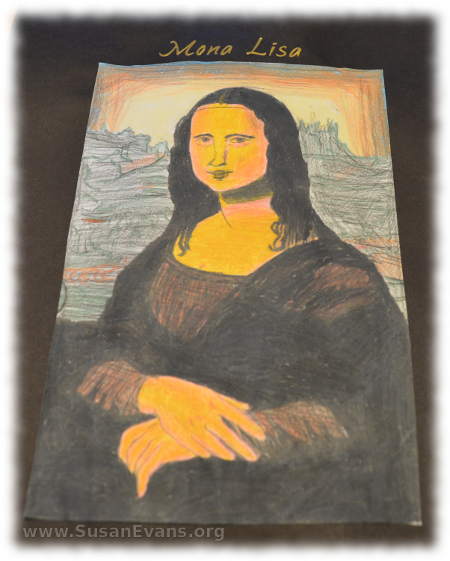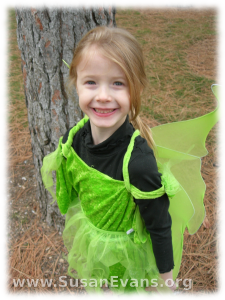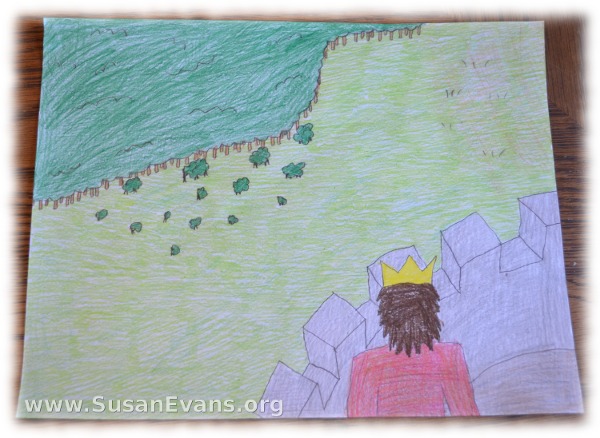My son Stephen Evans, who is 11 years old, wrote this “Ode to the Mona Lisa” a few days ago during our poetry class. An ode is a lyric poem. Lyric poems often have a refrain, or words that are repeated. Songs are lyric poems (which used to be sung accompanied with a lyre), and so are odes, which magnify one specific subject. Stephen chose to describe the Mona Lisa, and his refrain captures the essence of how he feels about the portrait:
Lined with pictures left and right
A hallway stretches indefinitely
I’ll never forget that portrait
It’s creepy; she’s staring at me
Her eyeballs move from side to side
Her thin smile has no glee
Her skin is deathly pale
It’s creepy; she’s staring at me
The misty background of the picture
Could be a murky swamp or sea
Her chair could sink into the ground
It’s creepy; she’s staring at me
Her hair is like spaghetti
She looks so solemn; can’t you see?
I’ll never forget that portrait
It’s creepy; she’s staring at me
The Mona Lisa was painted by the famous Renaissance artist, Leonardo da Vinci.







